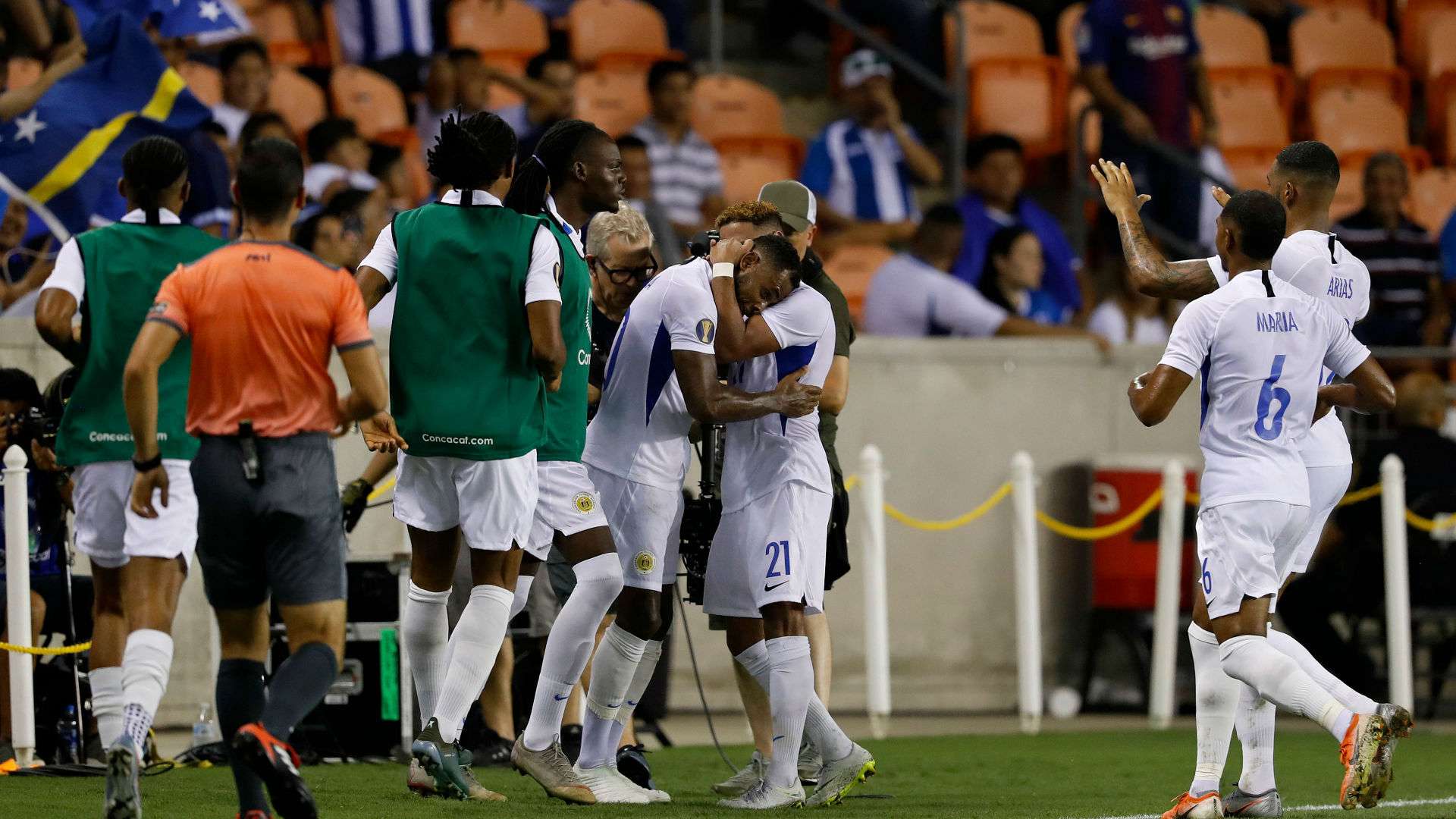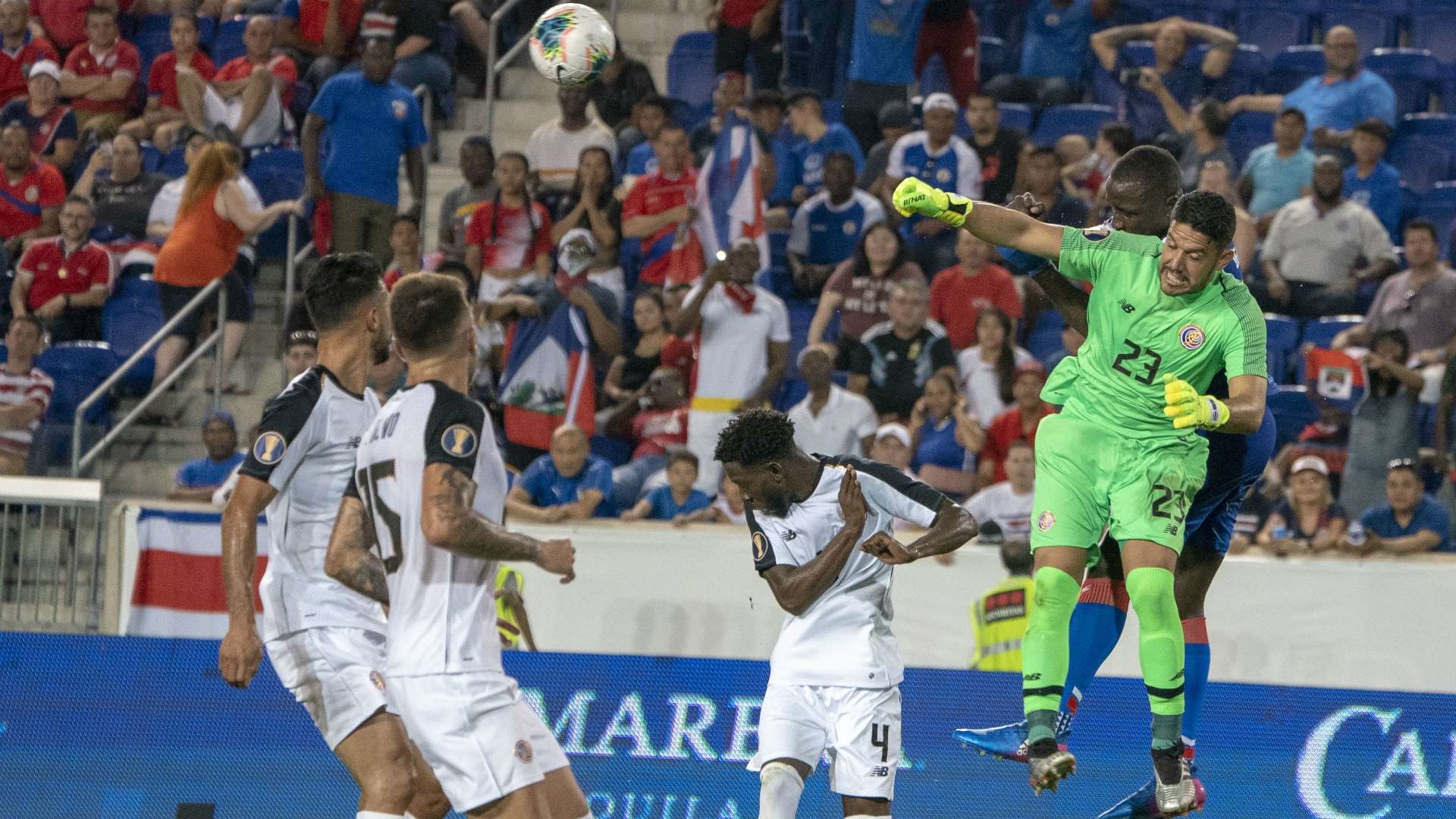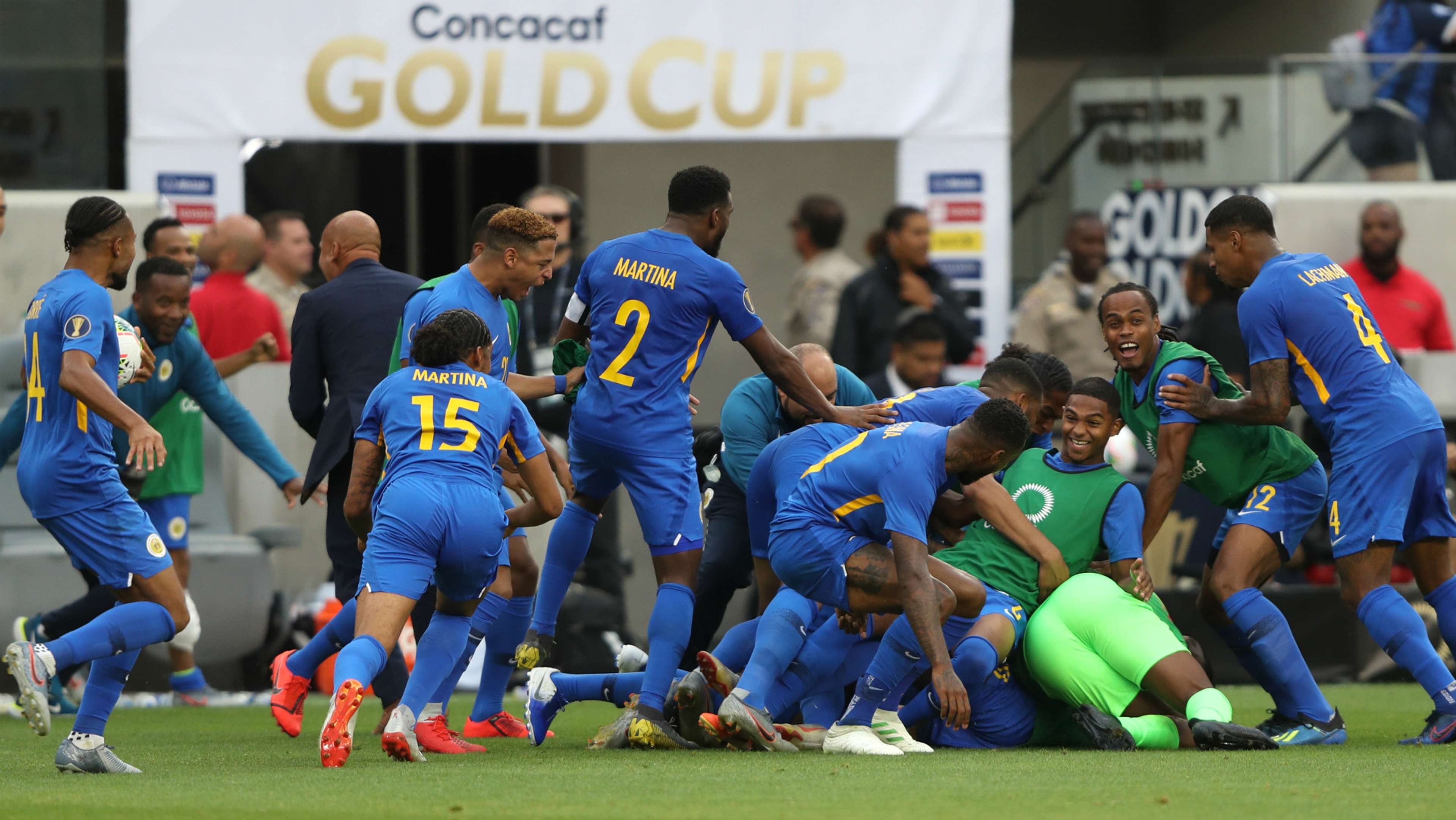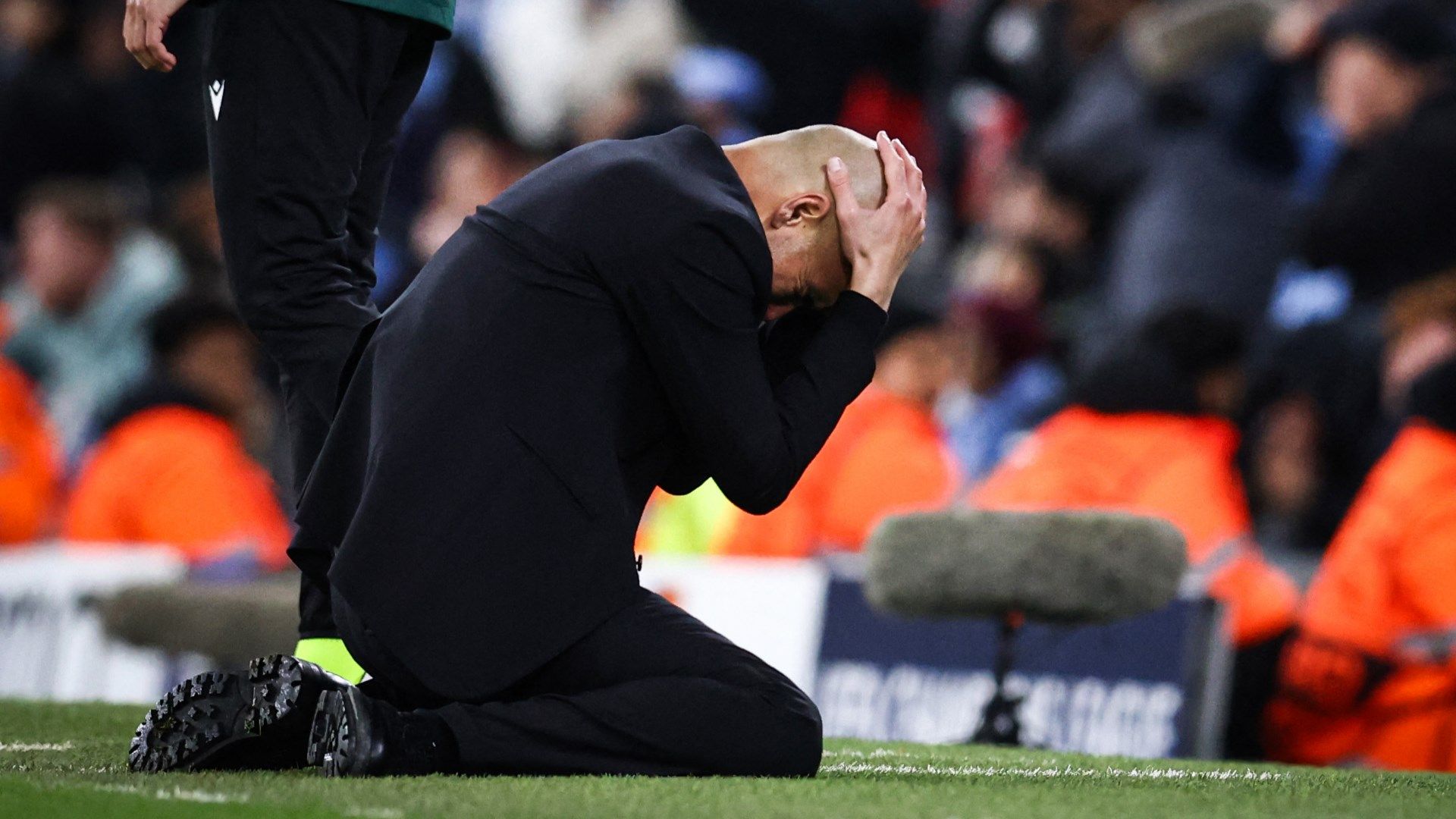When Concacaf expanded the Gold Cup to 16 teams, it seemed like it could lead to a pretty lifeless group stage. Instead, it has gifted the tournament the most vibrant opening phase in recent memory.
Who would have thought that Haiti was going to conquer Group B? That Martinique would push Mexico - yes, the regional power Mexico - to the brink with a 3-2 loss to El Tri? That Curacao would get its first-ever knockout berth in the same tournament in which it scored its first-ever goal and earned its first-ever Gold Cup points? And, even without advancing, that Bermuda and Guyana would earn their first points in their Gold Cup debuts, sending a message that things will not be easy for teams that meet them in the future.
Outside of the members of the teams themselves, few could have expected a Gold Cup group stage with this many surprises, moments of intrigue that have made the Concacaf championship stand out during a busy summer that includes the Copa America and African Cup of Nations being contested at the same time.
Saying there has been a power shift from Central America to the Caribbean is too knee-jerk, but those changes implemented by Concacaf did not happen in a vacuum.
The expansion was part of other efforts from the confederation to give some of the smaller teams in the region regular fixtures. The Nations League is yet to debut, but with each team playing four qualification matches in the last year, nations that had not played games for literally years suddenly had to call in a squad, train and establish a philosophy for four matches in a short period of time.
"I think that’s one of the most critical things. These regular camps and friendlies and competitive games obviously help the lads get to know each other," Guyana captain Neil Danns told Goal. "It gave them a lot of experience which will stand them in good stead for the future.
"The implementation of the Nations League is massive. Now most of the games are going to be competitive, and it always gives the guys something to fight for."
Some teams were trying to make those types of changes on their own. Curacao brought in strong teams starting in 2016 and earned a place in the 2017 Gold Cup. It went on to win the 2017 Caribbean Cup just before that tournament and kept that group together for impressive performances in a tough group - though they all finished 2-0 in favor of Curacao's opponents.
 Getty
Getty
"We learned from the Gold Cup in 2017. We have good games against good teams, Meixco, Jamaica, El Salvador," Curacao manager Remko Bicentini said last week after his team's win over Honduras. "We had chances but we didn’t score a goal. We learned that we must score a goal. Now we have more routine and that’s why we now can win in the Gold Cup."
The Nations League and other efforts will only help. Curacao, which draws heavily from Dutch football to compose its roster, is not alone in having talent based abroad, but often the investment has not been there to regularly bring players in from Europe.
Even when those players did make it to the region, they would often be tossed together for a day or two before being asked to play a match.
Haiti is hardly a wealthy federation, but it is finding a way to get a strong base of players together for Marc Collat to work with on a regular basis. Costa Rica was the seeded team in the group, but Haiti was the one that had more success in recent matches, topping the entire Nations League qualification table with four victories while the Ticos tried to shake off their 2018 World Cup hangover and begin the next cycle.

"You can talk about the economic difference or infrastructure differences, and we can't deceive ourselves," Costa Rica manager Gustavo Matosas said Wednesday. "Small countries have given us difficulty, but there they are. We've seen that the Caribbean teams are coming along really well."
Do not look for the Central American teams to take it lying down, though. El Salvador, Honduras and even Matosas' Costa Rica will have to go all-out in the Nations League as well - not just to win back credibility with fans but to stay in League A (or get there, in El Salvador's case).
Guatemala's exile from international soccer also has come to an end, with the Chapines eager to scale the ladder and get back to a tournament like the Gold Cup.
Changes made by Concacaf have not been to the liking of the region's powers, but even Mexico and the United States have to recognize the rising tide lifting all boats.
They should beware as well. That tide is bringing more and more sharks into the water where before only minnows swam.


.jpg?auto=webp&format=pjpg&width=640&quality=60)

